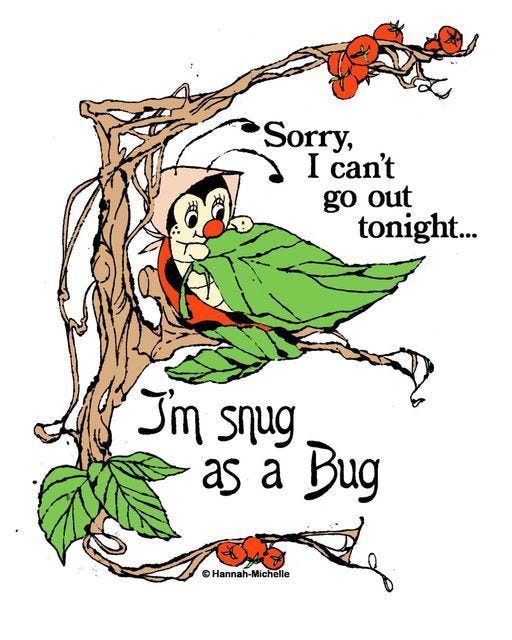mental health recovery, midnight meltdowns, dreaming about academia, and suing social media
Hello.
I took a few days away from social media this week for a little mental health reset. I’ve been thinking deeply about how I can show up in this space and add value to your day. I’m not an expert in anything. (This is where I’m struggling). I want to feel like I have the credentials to help and have a trustworthy and valuable point of view. It still feels very much like there are too many cooks in the kitchen.
Until I figure this out, I will continue to write to you and share interesting articles that I find in hopes that you can learn something useful and carry it with you throughout the day- big brain energy.
I’ve taken a few polls to see what you all are interested in reading. Many of you responded with psychology/philosophy, science/tech, society/cultural, which leads me to believe that you’re smart and that you care about the world and you’re curious and hungry for knowledge, just like me.
So with that said, let’s get into today’s reading.
Read with me:
This edition of "The Wonder Reader" newsletter delves into the art of disagreeing constructively, featuring insights from historical essays to modern advice on navigating arguments with grace and efficacy. It highlights strategies for engaging in healthier communication, emphasizing the importance of timing, understanding, and the productive potential inherent in disagreement.
The Atlantic
A Psychologist Explains The ‘New-Age Nostalgia’ Trend
The article explores the phenomenon of "new-age nostalgia," highlighting how digital platforms and technology have transformed the way we reminisce and connect with our past. It emphasizes that nostalgia, traditionally a bittersweet longing for the past, has found new expressions through social media trends, retro gaming, nostalgic filters, and digital archives, making it an integral part of our digital identity and social interactions. The piece also suggests that nostalgia, particularly in the digital age, can enhance our emotional well-being by fostering a sense of continuity, shared history, and personal fulfillment, offering a counterpoint to the fast-paced modern life.
Forbes
Why Adults Still Dream About School
The enduring presence of school in adult dreams, often manifesting as anxiety-inducing scenarios of unpreparedness or failure, underscores the deep-seated impact of educational experiences on our psyche, shaping not only our foundational beliefs but also our responses to contemporary challenges and evaluations in adult life. This phenomenon highlights the intricate way our minds process and revisit past experiences, particularly those tied to formative years, as a means to navigate and make sense of current stressors and expectations, thereby revealing the profound and lasting influence of early life experiences on our subconscious and how we perceive and react to the world around us.
The Atlantic
It’s The End Of The Web As We Know It
AI's rise is reshaping the web, revolutionizing how we seek information while simultaneously flooding it with dubious AI-generated content. This shift could render traditional search engines obsolete, threatening the economic model sustaining many web publishers.
The Wall Street Journal
Forget Tinder- Welcome To The World Of Bizarre Virtual Girlfriends
Exploring the world of virtual girlfriends, Siân Boyle encounters AI chatbots that simulate romantic partners. As AI evolves, it's repurposed into digital amours, blurring lines between real interactions and virtual companionship. Despite initial skepticism, Boyle finds herself drawn into surprisingly human-like exchanges, highlighting the complexities of digital intimacy in today's tech-driven landscape.
The Times
Here’s How Generative AI Will Redefine The Workplace
The article emphasizes the transformative impact of Generative AI in redefining workplace dynamics and productivity, urging HR leaders to integrate this technology while addressing the human challenges of trust and engagement. It portrays Gen AI as a creative force capable of generating novel content, necessitating a nuanced approach to its adoption that balances technological advancement with human-centric strategies.
Forbes
A Psychologist Offers 3 Ways Out Of A ‘Midnight Meltdown’
To combat the cycle of negative thoughts that can disrupt sleep and well-being, it's essential to focus on positive experiences through practices like maintaining a gratitude journal, engaging in mindfulness to increase self-awareness and acceptance, and using distraction or problem-solving to shift focus from rumination. These strategies can help break the habit of negative thinking, leading to improved emotional processing, sleep, and overall health.
Forbes
New York City Is Suing TikTok And Instagram For ‘Addicting’ Children
New York City has filed a lawsuit against major social media companies including Meta (Facebook and Instagram), TikTok, Snap, and Google, accusing them of contributing to a youth mental health crisis through addictive platform designs. This legal action is part of a broader wave of lawsuits from various government entities targeting these tech giants for their platforms' potential harms to children. The lawsuit alleges that features like recommendation algorithms and likes are designed to keep children engaged for longer periods, to their detriment. This case adds to the ongoing debate and legal scrutiny over the responsibility of social media companies in safeguarding young users' mental health and well-being.
The Verge
Is Podcasting Becoming Overcrowded?
Ryan Consbruck's article on Byline, "Is Podcasting Becoming Overcrowded?", explores the saturation of the podcasting landscape, pondering if this medium has deviated from its original allure and intimacy. He reflects on the personal significance podcasts once held and deliberates whether their essence is diluted amidst the burgeoning quantity, urging a contemplation on quality over quantity in the podcasting realm.
Byline
Why Won’t Silicon Valley Take Teen Girls Seriously?
The article discusses how Silicon Valley often overlooks the influence of teenage girls on tech products, despite their significant role in popularizing major social platforms. It highlights instances where products aimed at young women were initially dismissed by investors but later achieved substantial success, like the TBH app acquired by Facebook. The piece argues that teenage girls are key drivers of digital culture and engagement, yet face misogyny and are not taken seriously in the tech industry, impacting funding for female-led initiatives and the development of safe, inclusive tech products.
Byline
Love you.
See you soon.
Bye <3





